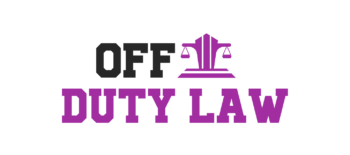Running a business in Orlando—whether you’re in tourism, tech, food, or fashion—means competing in a fast-growing, highly visible market. You invest time, creativity, and money into building your brand. But without proper trademark protection, all of that hard work can be at risk.
The truth is, trademark mistakes are surprisingly common among entrepreneurs, especially those launching startups or small businesses. What might seem like a harmless oversight can lead to lawsuits, forced rebranding, lost revenue, and wasted marketing efforts.
Here are some of the most common trademark mistakes Orlando business owners make—and how you can avoid them before it costs you thousands.
1. Not Conducting a Proper Trademark Search
One of the most frequent—and costly—mistakes is failing to check whether your desired brand name is already taken. Many entrepreneurs skip this step or just do a quick Google search, thinking if they don’t see an exact match, they’re safe.
But here’s the problem: trademarks don’t need to be identical to cause legal issues. If your name is confusingly similar to another registered trademark in the same industry, you could be infringing.
Why it matters:
- You could be forced to rebrand after investing in signage, packaging, a website, and marketing.
- You might get hit with a cease-and-desist or even a lawsuit.
- You risk losing consumer trust and SEO rankings by changing your name later.
How to avoid it:
Work with a trademark attorney to run a comprehensive clearance search. They’ll search federal, state, and common law sources and advise whether your brand name is safe to use.
2. Choosing a Weak or Unregistrable Name
Another common trap is choosing a name that’s too generic or descriptive, making it difficult—or impossible—to protect.
For example, naming your Orlando juice bar “Fresh Juice” or your boutique “Fashion Store” won’t cut it. These kinds of names describe what you sell but don’t distinctly identify your brand.
Why it matters:
- Generic names can’t be registered as trademarks.
- Descriptive names are very difficult to protect legally.
- Competitors can use similar names freely, leading to customer confusion.
How to avoid it:
Choose a brand name that’s unique and distinctive. Think coined or invented words, suggestive names, or unusual combinations—something that sets you apart in the marketplace.
3. Assuming a Business Name or Domain Equals Trademark Protection
Just because you’ve registered your LLC or secured a domain name doesn’t mean you own the trademark rights to your brand.
Business name registration and domain purchases are often confused with trademark registration—but they serve very different purposes.
Why it matters:
- You might be infringing on someone else’s trademark without realizing it.
- You have no real legal protection against others using a similar name.
- Owning a .com doesn’t protect you from being sued by a trademark holder.
How to avoid it:
Understand that business registrations and trademarks are separate. Register your business with the state—but also protect your brand name with a federal trademark registration if you’re doing business across state lines or online.
4. Delaying Trademark Registration
Many small business owners wait until they’ve “grown a bit” before applying for a trademark. But this delay can leave you vulnerable.
You might launch your business, invest in branding, build an online following—only to later find out someone else already owns that name or has filed for it first.
Why it matters:
- Trademark rights are often based on first to file, not first to use.
- You risk losing the name, even if you used it first locally.
- Rebranding later is expensive and disruptive.
How to avoid it:
If you’ve settled on a brand name and started using it in business, don’t wait. Registering your trademark early gives you nationwide protection and peace of mind.
5. Failing to Monitor and Enforce Your Trademark
Once you’ve registered your trademark, your work isn’t done. It’s up to you to monitor your mark and enforce your rights if someone else starts using something similar.
Many business owners mistakenly believe that the USPTO will “watch out” for infringers. They don’t. If someone starts using your name, it’s up to you to take action.
Why it matters:
- Unchecked infringement can weaken your mark over time.
- Failure to enforce your rights can limit your ability to protect the brand in the future.
- You may lose sales or credibility if customers confuse your brand with a knockoff.
How to avoid it:
- Set up Google Alerts and monitor trademark filings.
- Work with an attorney to send cease-and-desist letters or take legal action if needed.
- Be proactive in defending your brand.
6. Trying to Handle the Trademark Process Alone
It’s tempting to file your trademark application without legal help to save money. But many DIY filings get rejected or result in limited protection.
The trademark application process is nuanced. From class selection to responding to Office Actions, simple errors can derail your registration or expose you to legal risks.
Why it matters:
- Filing mistakes can delay or deny registration.
- You may end up with a narrow or ineffective trademark.
- Fixing errors later is more expensive than doing it right the first time.
How to avoid it:
Hire a qualified trademark attorney to guide you through the process. It’s an investment that protects your brand and can save you thousands down the road.
Final Thoughts
In a competitive business hub like Orlando, protecting your brand name is more than a legal formality—it’s a business survival strategy. By avoiding these common trademark mistakes, you’re not just staying compliant—you’re building a brand that’s safe, secure, and ready for growth.
Don’t wait until it’s too late. Get your trademark strategy right from the start—and protect what you’re working so hard to build. We recommend trademark attorney orlando.











